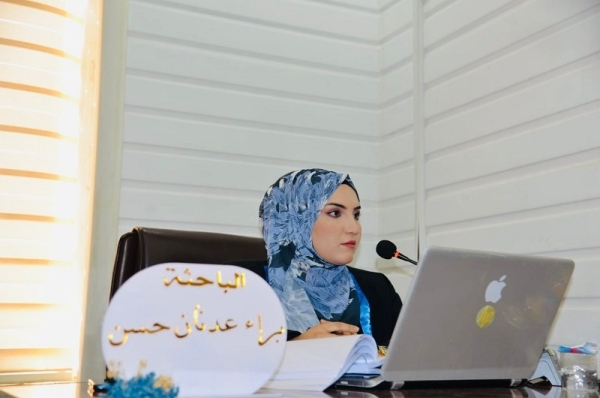A master's thesis at the Faculty of science at the University of Kirkuk discussed the genetic diversity of Pseudomonas aeruginosa bacteria isolated from clinical samples and its relationship with antibiotic resistance.
The thesis presented by the student Bara Adnan Hassan aimed to study the prevalence of Pseudomonas aeruginosa bacteria and their relationship to age, sex, living conditions and other chronic diseases and the extent of resistance of bacterial isolates to antibiotics, as well as to study a group of house keeping genes, which include Macsa-aroE-Goa - nuoD-ppsA-trpE-mult using PCR technology and conducting genetic analysis of the Pseudomonas aeruginosa isolates under study and comparing the results with registered in the NCBI global gene bank.
The letter concluded that there is a wide spread of Pseudomonas aeruginosa bacteria compared to other bacterial species, and most of the isolates were resistant to antibiotics and produced dyes such as biocyanin and bioverdin, and their ability to form biofilms. The results of PCR showed that all the studied isolates contained genes (aroE, acsA, ppsA, mutL, guaA) by 100%, while there were (nuoD, trpE) by 92.8%.

